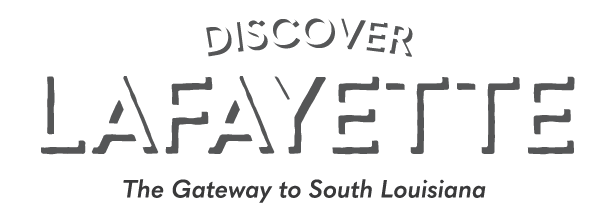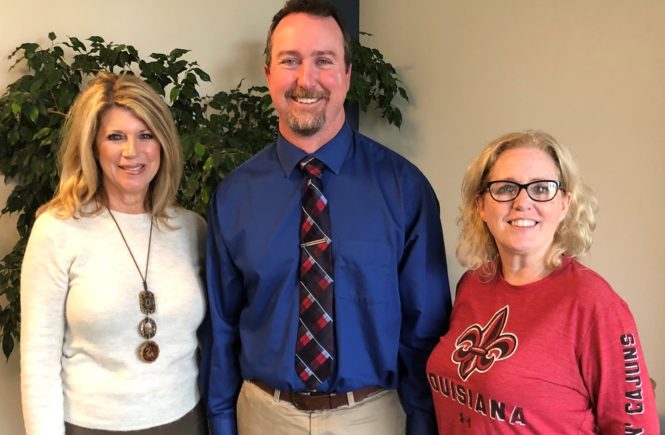Podcast: Play in new window | Download (Duration: 1:00:33 — 83.2MB)
Remember the days when you could turn on the radio or television and all you expected was to be treated to great music or entertaining shows? It seems like a million years ago when Walter Cronkite and his peers just reported the facts without adding their take on what you should think of the news or calling people derogatory names.
Our guests on this episode of Discover Lafayette are Jaci Russo and Craig Wall who were invited to discuss the merits of civil discourse in political conversations. Both guests were trained in the techniques of debate in high school and believe that the skills students learn in debate class prepares them for the rigors of life and the civic challenges that may be thrown their way!
Jaci Russo is co-founder of Brand Russo in Lafayette, which she started in 2001. A brand strategist with more than 25 years of experience, Jaci began her career at Creative Artists Agency (CAA) in Los Angeles and has worked with top names in the entertainment industry. She has published several books on branding and provides media management for local, regional and national clients.
Craig Wall is a history teacher and Speech and Debate coach at Teurlings Catholic High School. He has also been a radio DJ for the past 26 years and is currently a radio announcer at Mustang 107.1 and host of the Saturday morning “Country Roots” program. Craig has been named Teacher of the Year several times, first at Northside High, then Lafayette Parish High School Teacher of the Year, then Region IV High School Teacher of the Year, and a finalist for State High School Teacher of the Year. In 2017, Craig was named the Teurlings Catholic Teacher of the Year.
Jaci and Craig were each inspired by teachers they had in high school. In Jaci’s case, it was Judy Hadley at Lafayette High School, who is an icon in speech and debate circles and inducted in the Louisiana High School Speech League Hall of Fame in Advanced Policy Debate. Jaci jokingly recounted how Ms. Hadley was renowned for throwing shoes at students (“soft espadrilles, nothing hard”) when they didn’t follow directions. Jaci continued in debate in college and came in #7 in a national debate competition her freshman year.
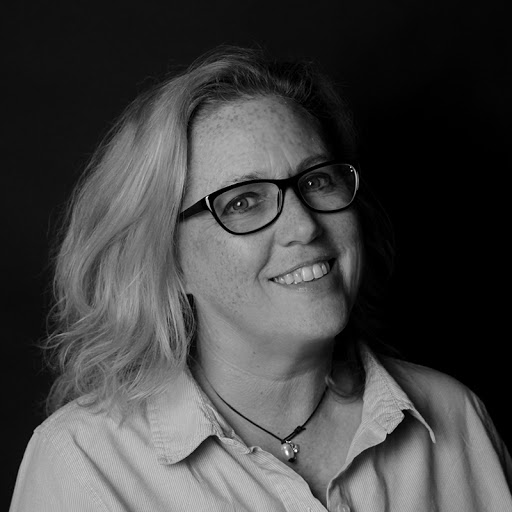
“I luckily had one of the greatest debate coaches of all time, Judy Hadley at Lafayette High School. She’s retired now and lives in Florida. But her skills and knowledge and shoe throwing, she had a lot of encouraging shoe-throwing out…..Well, that’s the real deal.”
Similarly, Craig was a shy student whose parents were shocked when he first took Speech as a student at Comeaux High. With the tools he learned in debate, he was able to step outside of himself and get over his fear of public speaking, learning how to analyze facts, prepare and present persuasive arguments for each side of an issue. He credits his acclaimed debate coach, Sandra Broussard, for all that he learned in high school that led him to experience great opportunities in life.

“Working in speech and debate in high school allowed me to open up and to take a risk that Craig Wall wouldn’t take. But the character I played could. From the interview, the actor’s side, I switched over to forensics, public speaking, learning to write a good, persuasive speech and a researched debate case as well. Everything I’ve done is as a result of getting involved with debate.”
In today’s political realm, public discourse has gotten totally divisive at the national level and this influence has unfortunately invaded local politics in ways never before experienced. With the popularity of talk radio dating back thirty years ago when Rush Limbaugh totally changed the way radio worked, and more recently, social media which is in everyone’s back pocket and accessible 24/7, news has become personal to all of us. Facebook and other social media apps took off in 2008 and broke down all barriers in the ways people communicate and get their news. The insulation of being in private behind a keyboard and computer screen allows people to write things they would never say in person, never say face to face to another human being. This has resulted in a massive drop off in civility and an immense increase of anger.
“Fake pages” that are not created by the actual person are made to appear real and can effectively reach more people in social media with one post than ever possible on some tv or radio. Jaci explained that Facebook has 4 billion users which can make it impossible for the social media giant to monitor all small cases of fake pages in small towns across the world.
Many people may think that politics is getting dirtier by the day, but interestingly, you can go back to 1800 for the first reported case of “dirty politics.” Craig recounts this infamous presidential race of Thomas Jefferson running against the presidential incumbent, John Adams, featuring ugliness in epic proportions. This was the beginning of “factions” or what we now call political parties. While people never attacked each other directly, they would hide behind newspapers who would report “news.”
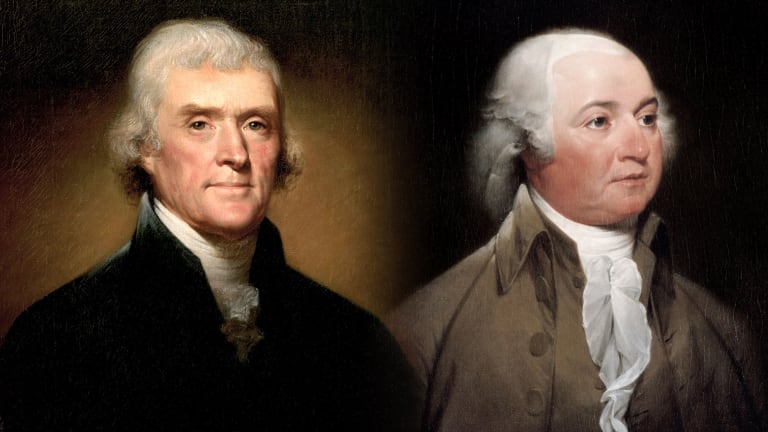
Dirty politics dates back to 1800 in the presidential race between Thomas Jefferson and John Adams. Human nature hasn’t changed over time but social media has changed the dynamics of how information is shared and power to get the news out is easier to abuse.
Jefferson had hired a political strategist and his camp described Adams as a “hideous hermaphroditical character, which has neither the force and firmness of a man, nor the gentleness and sensibility of a woman.” In return, Adams’ men called Vice President Jefferson “a mean-spirited, low-lived fellow, the son of a half-breed Indian squaw, sired by a Virginia mulatto father.” At the end of the day, the two men had to serve together as President and Vice President and work things out. This election is definitely one worth reading up on if you are unfamiliar with the story.
Craig recommends that all of his students read “A Brilliant Solution” by Carol Berkin. It provides a historical look at the Constitutional Convention and gives a close look at the fighting, human frailties, and personal arguments that took place in private and never reported to the general public. The end result was a brilliant piece of compromise that has withstood the test of time.
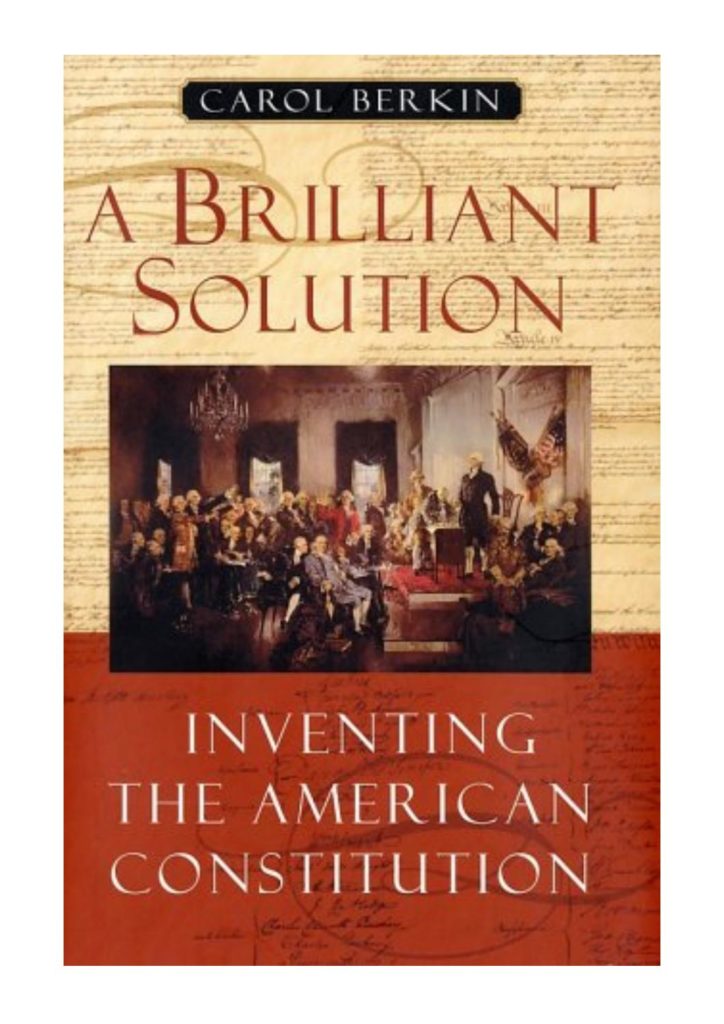
Craig Wall recommends that all of his students read “A Brilliant Solution” by Carol Berkin. The book recounts the arduous and sometimes raucous process, as well as the eventual compromises involved in drafting the U. S. Constitution.
When it comes to powerful persuasion, an appeal to the listener’s emotions is effective. How one “feels” can take precedent over the actual facts behind the argument. This is why debate is so powerful in learning how to communicate. Students have to research all sides of a topic and be able to argue both sides equally persuasively. They learn skills on how to think….speech and debate force the student to apply evidence-based facts despite what their personal opinion may be. When you dig deep into a topic, you learn that life isn’t black or white, it can have quite a bit of gray in it.
Jaci believes that very few people are 100% Democrat or 100% Republican; most people are shades of a political party. Once facts are gathered, particularly in a debate setting, you come to understand that your beliefs may be on the spectrum, not 100% pro or con. Jaci pointed out that she doesn’t even agree with her own opinions once held ten years ago; as she has grown, evolved and matured, the nuances of issues become more evident and increased understanding of the facts have led her to change her mind.
Debate teams are not as numerous as in days gone by due to funding cuts. Luckily, Lafayette and the surrounding region are blessed with programs for our students. Jaci and Craig advise all parents of high school students to get their kids in debate to prepare them to get properly educated on issues. Jaci believes the future of our company depends on all of us getting more educated on issues, particularly in political races. And, show up and vote: Exercise your precious right as an American to vote, a right so many others in the world would cherish.
Engagement in civic affairs, as well as attendance at organized religious services, is in a dramatic decrease. It is easy to become isolated and become disengaged from what is affecting our neighborhood, community, state, and nation. With the increase of handheld devices in lieu of landlines, people are less likely to pick up the phone when it rings and they never get information on the candidates. This is directly reflected in lower voter turnouts which average about 18% or less in some cases.
This interview is an opportunity to hear two thoughtful speakers share their hopes for a more educated populace that engage in civil discourse. Thanks to Jaci Russo and Craig Wall for sharing their stories and encouraging a more thoughtful way of communication.
